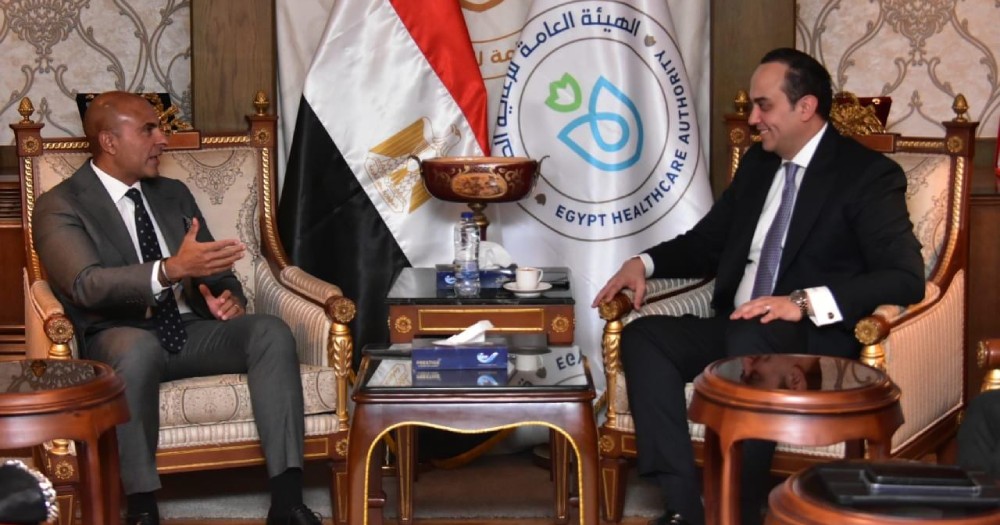EHA, AstraZeneca to boost collaboration on cancer, rare diseases

In a move towards enhancing healthcare in Egypt, the Egypt Healthcare Authority (EHA) and AstraZeneca Egypt have committed to strengthening their partnership. Their collaboration focuses on several key areas, including cancer and rare disease treatment, expanding healthcare access, and utilizing technology to revolutionize patient care.
The combined efforts are set to make a considerable impact on the healthcare landscape in Egypt, especially for underserved populations.
How will it work?
The partnership between EHA and AstraZeneca is built on a shared vision of using technology and innovation to address critical healthcare challenges. One of the primary initiatives is expanding healthcare services to remote areas through the implementation of telemedicine and the creation of a virtual hospital in Ismailia. This approach aims to provide high-quality remote consultations and diagnoses, ensuring that even those in strategic and remote areas receive timely and effective healthcare.
In addition to telemedicine, the collaboration will establish an innovation center focused on leveraging artificial intelligence (AI) to enhance healthcare quality, efficiency, and accessibility. AI's role in early disease detection, particularly for cancer and rare diseases, is a cornerstone of this initiative.
As EHA's Chairperson Ahmed El-Sobky stated, "The expansion of AI technology for early diagnosis of diseases, including cancer and rare diseases, is a priority."
Why does it matter?
This partnership is crucial for several reasons. Firstly, it addresses the need for equitable healthcare access across Egypt, particularly in remote regions where healthcare services are often limited. By introducing telemedicine and virtual healthcare facilities, the initiative ensures that high-quality care is available to all, regardless of location.
Furthermore, the focus on early disease detection through AI has the potential to save countless lives. Early diagnosis is often the key to successful treatment, especially in cases of cancer and rare diseases. This collaboration enhances the healthcare system's efficiency and aligns with Egypt's Vision 2030, which aims to achieve health sustainability.
As AstraZeneca Egypt Country President Hatem Werdany highlighted, "The partnership aims to enhance the efficiency of the healthcare system by expanding the use of AI technologies for early diagnosis of various diseases."
The context
The collaboration between EHA and AstraZeneca takes place within a broader context of ongoing healthcare reforms in Egypt. The country has been making significant strides in improving its healthcare infrastructure, and this partnership is a testament to those efforts. By aligning with global initiatives like AstraZeneca's "Cancer Care Africa," Egypt is positioning itself as a leader in healthcare innovation on the continent.
The focus on training healthcare teams, establishing national drug and disease offices, and introducing genetic drug testing further underscores the comprehensive nature of this partnership. In addition, the initiative's attention to the early detection of non-communicable diseases, such as kidney failure, and the exploration of healthcare's environmental impact, reflects a holistic approach to health and well-being in Egypt.
In conclusion, this collaboration is poised to significantly improve healthcare delivery, particularly for those in remote areas. Through the use of AI and other innovative technologies, the partnership aims to provide timely and effective healthcare solutions — contributing to the overall goal of health sustainability in line with Egypt's Vision 2030.
💡Did you know?
You can take your DHArab experience to the next level with our Premium Membership.👉 Click here to learn more
🛠️Featured tool
 Easy-Peasy
Easy-Peasy
An all-in-one AI tool offering the ability to build no-code AI Bots, create articles & social media posts, convert text into natural speech in 40+ languages, create and edit images, generate videos, and more.
👉 Click here to learn more


